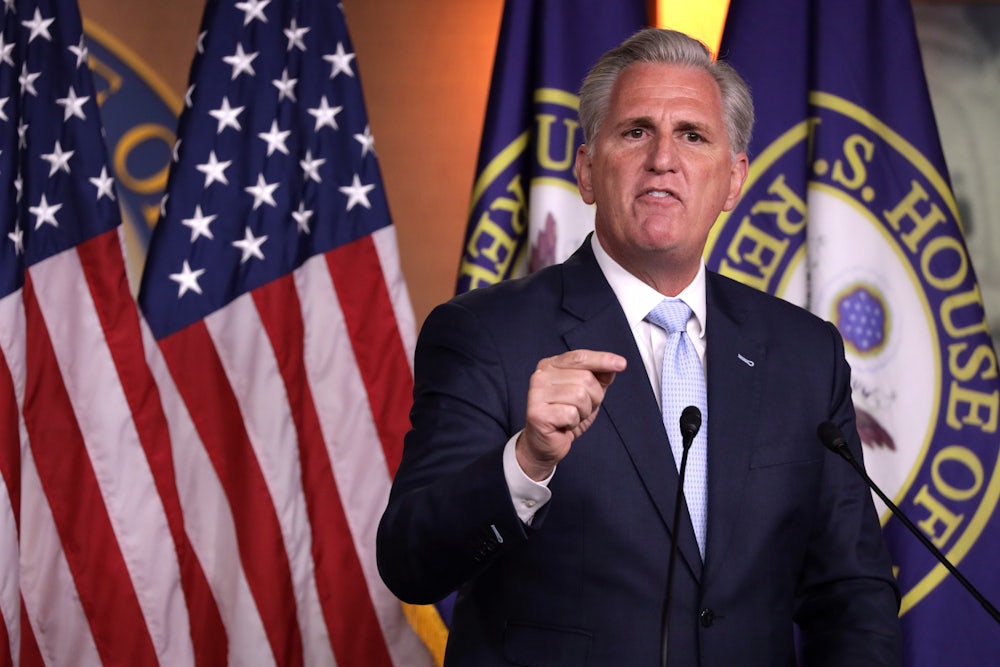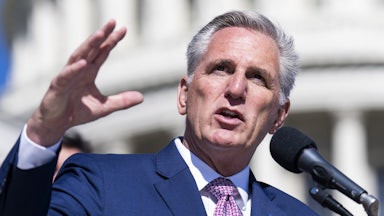Seven months ago, when Russian tanks approached the outskirts of Kyiv, it seemed as if the invasion of Ukraine might end swiftly, as many in the international community started to fret over what came next: how best to protect the Baltic states from Russian aggression.
In late October, things look rather differently. Russia’s troops failed to breach the Ukrainian capital, and the ambitions of its illegal invasion quickly whittled down. Troops massed in the east—while airstrikes have continued throughout the country, killing thousands of civilians—as Putin aimed to occupy or contest several provinces. This effort has lately faltered, with Russia pulling back from Kharkiv, Lyman, and other annexed cities. Things are going so poorly that Vladimir Putin has called up hundreds of thousands of reservists and has reportedly raised the specter of using tactical nuclear weapons—a horrific option that only underlines how desperate his position has become.
During this time, aid from the United States has been critical to Ukraine’s continued resistance. Over the last several months, Congress has provided billions in arms, ammunition, and economic assistance that has helped the country withstand the brutal assault. Now Republicans are threatening to cut Ukraine off if they retake Congress next month.
“I think people are gonna be sitting in a recession and they’re not going to write a blank check to Ukraine,” House Minority Leader Kevin McCarthy told Punchbowl News last week. Freedom Caucus chair Scott Perry has also floated an investigation into the Biden administration’s handling of the conflict as part of a pressure campaign to help end U.S. assistance to Ukraine. Perry claims his goal is to avert nuclear war and end the conflict, but given the fact that it’s now clear that Ukraine intends to fight to the last man, the idea that the U.S. has the influence to bring the war to a halt absent a Russian withdrawal is overstated.
Meanwhile, J.D. Vance, running for Senate in Ohio, has made opposition to U.S. aid to Ukraine a major part of his campaign, thanks in part to the influence of billionaire megadonor Peter Thiel. Donald Trump, meanwhile, has insisted that he could end the war, writing on his social media platform Truth Social, “Be strategic, be smart (brilliant!), get a negotiated deal done NOW. Both sides need and want it. The entire World is at stake. I will head up group???”
The Biden administration has said that it welcomes Republican opposition to the war—an understandable position, given the unpopularity of Vladimir Putin and the overall level of sympathy toward the people of Ukraine. Politico reported that the administration believes that “political blowback would singe the GOP if the money stopped, Ukraine suffered, and Russia emerged triumphant.”
That’s a perfectly reasonable conclusion for the White House to draw, but it is perhaps missing what McCarthy and the other members of the GOP’s America First caucus are trying to achieve: They’re not trying to boost Putin by cutting off aid to Ukraine, they’re trying to hang a defeated Ukraine around Biden’s neck. There’s no doubt that cutting off assistance would become a political football in Washington. But let’s take Occam’s razor to any notion that Republican lawmakers are part of some woolly alliance with Putin: It is simple enough to predict that they will contend that the weakness and fecklessness of the Biden administration “lost” Ukraine. That hammer, once forged, will be among the things they’ll bash Biden with should he run again in 2024. As they plan to wreck the economy, they plan to wreck Europe.
It’s not guaranteed that the scheme will work. Many congressional Republicans, including McCarthy’s Senate counterpart Mitch McConnell, support sending aid to Ukraine, and the party currently does not seem to have the votes to block it. And the White House typically has a freer hand to affect foreign policy outside of congressional constraint (for better or worse). But the MAGA/America Firster ranks will likely swell after the midterm elections, which will erode the bipartisan consensus behind assisting Ukraine’s efforts to resist Russia’s brutal invasion. What GOP support for Ukraine currently exists may further fracture if the war becomes a live issue in the soon-to-kick-off presidential campaign, as well.
It’s clear that from the administration’s perspective, it believes itself to be holding a strong hand. But as The Washington Post’s Greg Sargent notes, it’s prudent to plan ahead for the sands to shift. “Even if Biden aides are professing confidence about continuing aid to Ukraine in 2023, Democrats should seriously consider locking in longer-term aid to Ukraine during the lame-duck session, if they lose the House and/or Senate,” he wrote. The GOP can’t be compelled to do the right thing, and many in the party actively want Russia to win the war. To ensure the continuation of aid, it may be necessary for Democrats to secure long-term funding sooner rather than later.










